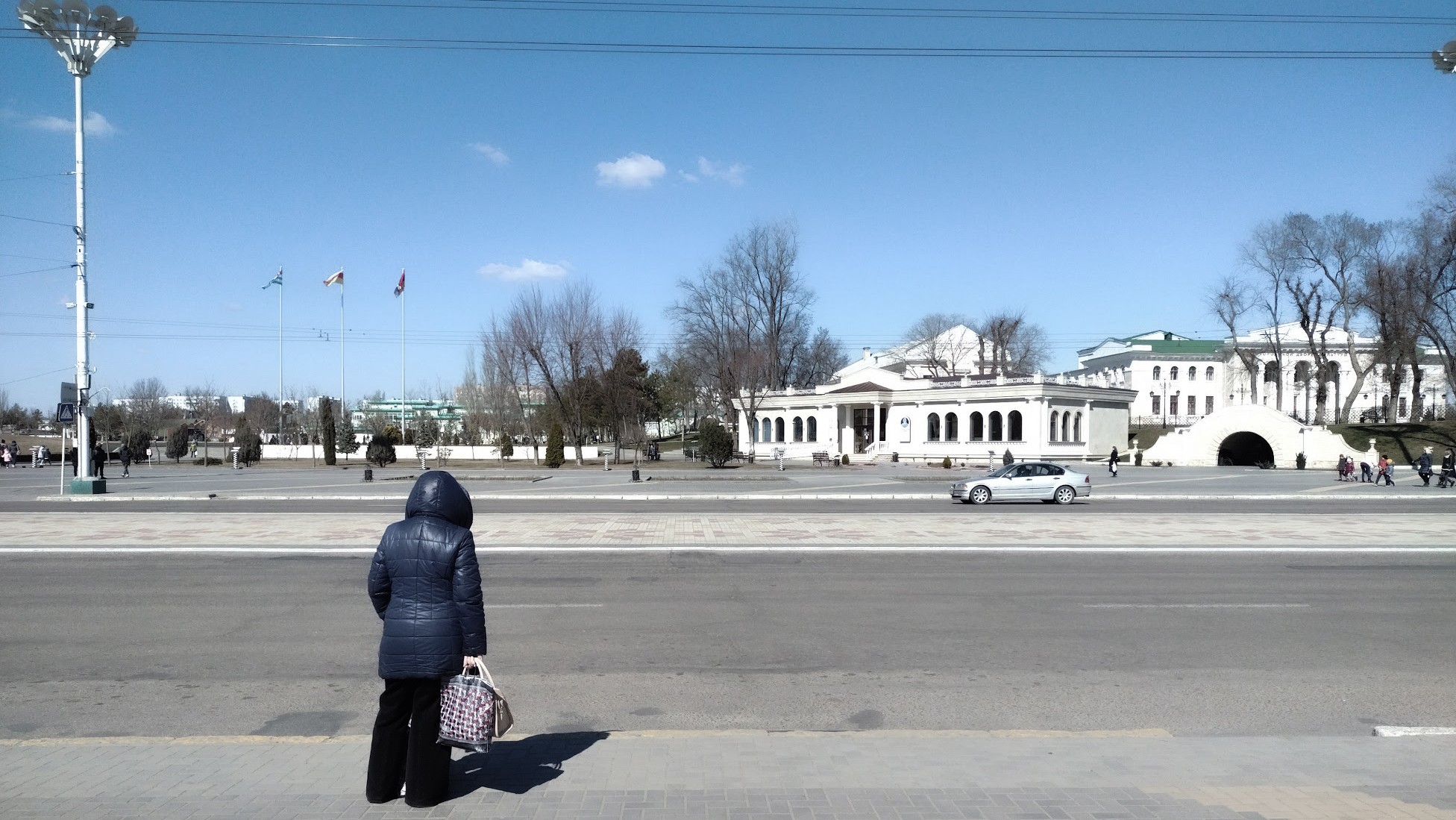Transnistria: the breakaway republic in the Kremlin’s sights
Russian general says Moscow aims to create a ‘corridor’ across southern Ukraine to Transnistria

A free daily email with the biggest news stories of the day – and the best features from TheWeek.com
You are now subscribed
Your newsletter sign-up was successful
Trouble is stirring in the “invisible republic” of Transnistria, said Tonia Mastrobuoni in La Repubblica (Rome).
Transnistria was created during the collapse of the USSR, when a largely Russian-speaking enclave in eastern Moldova, between the Dniester River and the Ukrainian border, declared itself independent from the young Moldovan republic. Russia sent in troops to back the separatists. A brief war ended in deadlock, which left the territory and its 500,000 or so people in limbo.
Transnistria, which no UN member recognises, is “a land lost to time”, said Rob Picheta on CNN – a Soviet-style mini-state propped up by Russian subsidies. In Ukraine and Georgia, protecting such puppet regimes provided the pretext for Russian invasions.
The Week
Escape your echo chamber. Get the facts behind the news, plus analysis from multiple perspectives.

Sign up for The Week's Free Newsletters
From our morning news briefing to a weekly Good News Newsletter, get the best of The Week delivered directly to your inbox.
From our morning news briefing to a weekly Good News Newsletter, get the best of The Week delivered directly to your inbox.
And last week, a Russian general, Rustam Minnekaev, said that Russia aimed to create a “corridor” across southern Ukraine to Transnistria, “where the Russian-speaking population is oppressed”. At the same time, ominously, there were “unexplained explosions” in Transnistria. Moscow and Kyiv blamed each other for the blasts.
Russia is preparing to invade Moldova, said Stefan Vlaston in Adevarul (Bucharest). “There are too many signals to be considered mere coincidences.” Moldova is, like Ukraine, Western-leaning (it has requested to join the EU), but unlike Ukraine, it has a particularly small army, “and therefore cannot be defended”. Vladimir Putin desperately needs a “trophy” for the 9 May Victory Day parade. Moldova is “a safe victim”. There are already 1,500 Russian troops in Transnistria; an invasion would also allow Russian forces to “lay siege to Ukraine’s western flank”.
Moldova is careful to maintain its neutrality, said Ion Stoica in Vedomosti (Chisinau). It has good relations with both the EU and Russia; it has no designs to join Nato. But it is “sitting on a powder keg”, not just “figuratively, but literally”. The largest arms depot in eastern Europe is in Transnistria, full of ammunition left by Soviet troops. An explosion there would be comparable to the Hiroshima bomb.
A Russian offensive towards Moldova would be “very risky”, said Jedrzej Winiecki in Polityka (Warsaw). The Kremlin’s push west to Odesa has largely ground to a halt. Since the sinking of the cruiser Moskva, it has withdrawn its navy to a safe distance from Odesa, and it doesn’t have full air superiority. For now, at least, such an operation is most unlikely. Russia’s recent statements and actions are probably designed simply to distract Ukraine’s military from the main theatre of war, in the east.
A free daily email with the biggest news stories of the day – and the best features from TheWeek.com
-
 The ‘ravenous’ demand for Cornish minerals
The ‘ravenous’ demand for Cornish mineralsUnder the Radar Growing need for critical minerals to power tech has intensified ‘appetite’ for lithium, which could be a ‘huge boon’ for local economy
-
 Why are election experts taking Trump’s midterm threats seriously?
Why are election experts taking Trump’s midterm threats seriously?IN THE SPOTLIGHT As the president muses about polling place deployments and a centralized electoral system aimed at one-party control, lawmakers are taking this administration at its word
-
 ‘Restaurateurs have become millionaires’
‘Restaurateurs have become millionaires’Instant Opinion Opinion, comment and editorials of the day
-
 What would a UK deployment to Ukraine look like?
What would a UK deployment to Ukraine look like?Today's Big Question Security agreement commits British and French forces in event of ceasefire
-
 Would Europe defend Greenland from US aggression?
Would Europe defend Greenland from US aggression?Today’s Big Question ‘Mildness’ of EU pushback against Trump provocation ‘illustrates the bind Europe finds itself in’
-
 Is conscription the answer to Europe’s security woes?
Is conscription the answer to Europe’s security woes?Today's Big Question How best to boost troop numbers to deal with Russian threat is ‘prompting fierce and soul-searching debates’
-
 Trump peace deal: an offer Zelenskyy can’t refuse?
Trump peace deal: an offer Zelenskyy can’t refuse?Today’s Big Question ‘Unpalatable’ US plan may strengthen embattled Ukrainian president at home
-
 The Baltic ‘bog belt’ plan to protect Europe from Russia
The Baltic ‘bog belt’ plan to protect Europe from RussiaUnder the Radar Reviving lost wetland on Nato’s eastern flank would fuse ‘two European priorities that increasingly compete for attention and funding: defence and climate’
-
 How should Nato respond to Putin’s incursions?
How should Nato respond to Putin’s incursions?Today’s big question Russia has breached Nato airspace regularly this month, and nations are primed to respond
-
 What will bring Vladimir Putin to the negotiating table?
What will bring Vladimir Putin to the negotiating table?Today’s Big Question With diplomatic efforts stalling, the US and EU turn again to sanctions as Russian drone strikes on Poland risk dramatically escalating conflict
-
 The mission to demine Ukraine
The mission to demine UkraineThe Explainer An estimated quarter of the nation – an area the size of England – is contaminated with landmines and unexploded shells from the war